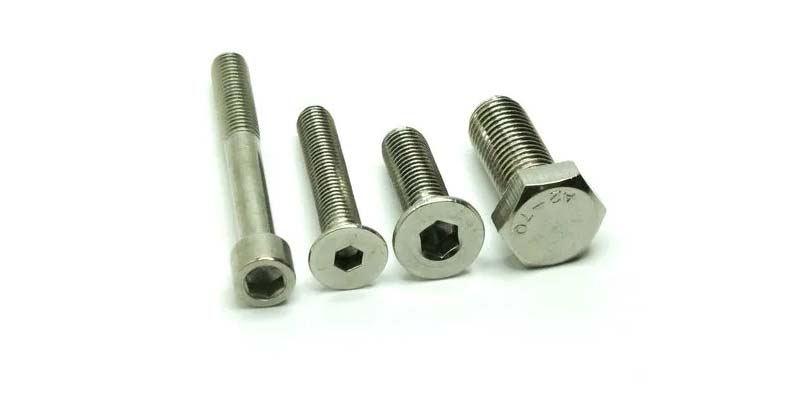- Contact Innally, Let you purchase forgings in China more favorable prices, products more assured!
- Hotline:+(86)15038323776 Email:innally@innally.com
The material and hardness of fasteners have an important impact on their performance.
- Category: Rigging and fasteners, Stainless steel forging
- |
- Date: 25/09/2023
when selecting fasteners, it is necessary to consider their material and hardness comprehensively to obtain the best performance. At the same time, for different application scenarios and needs, it is necessary to conduct reasonable material selection and hardness adjustment according to the actual situation.
Product Details
Here is a brief overview of these effects: Effects of materials:
Strength: The strength of the fastener material determines its tensile, compressive and other mechanical properties. High-strength materials such as alloy steel, stainless steel, etc. have high tensile strength and compressive strength, and are suitable for bearing large loads. Mild steel is suitable for ordinary occasions.
Corrosion resistance: Different materials have different resistance to corrosion, oxidation or other reactions. For example, stainless steel and titanium alloys have good corrosion resistance and are suitable for fasteners exposed to corrosive environments.

The effect of hardness:
Connection stability: The hardness of the fastener is related to its connection stability. The higher the hardness, the more difficult it is to change its shape by stretching or compression, thus improving the stability of the connection. However, if the hardness is too high, it may cause the fastener to increase brittleness and reduce its toughness.
Wear resistance: Hardness also affects the wear resistance of fasteners. The higher the hardness, the better the wear resistance, which can better resist friction and wear. However, too high a hardness can lead to stress concentration, increasing the risk of fracture.
In summary, when selecting fasteners, it is necessary to consider their material and hardness comprehensively to obtain the best performance. At the same time, for different application scenarios and needs, it is necessary to conduct reasonable material selection and hardness adjustment according to the actual situation.
nannan
INNALLY website editing, to provide you with forging related information
Related Products
Search
Forging center
- Steel forgings
- Aluminium alloy forging
- Titanium alloy forging
- Stainless steel forging
- Copper forging
- Automotive forgings
- Locomotive forging
- Bicycle forgings
- Motorcycle forging
- Rigging and fasteners
- Bearing forging
- Electric power fittings
- Marine forging
- Mechanical forgings for metalworking
- Mining machinery forgings
- Marine engineering forgings
- Construction machinery forgings
Popular product

© 2025. All Rights Reserved.






